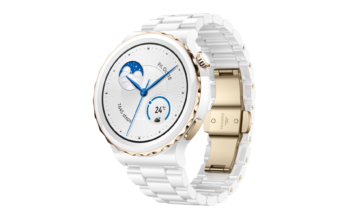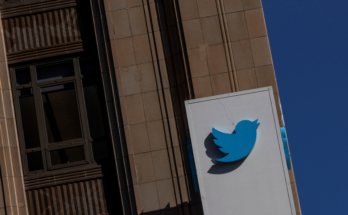
The FDA’s vaccine advisory panel spent all of yesterday discussing the results of Pfizer and BioNTech’s COVID vaccine studies. At the end of the day, they voted “yes” to the question of whether the available science suggests the benefits of the vaccine outweigh its risks. The FDA is expected to move quickly to grant the vaccine an Emergency Use Authorization (EUA); after initially planning to finalize the order by Saturday, it could happen as soon as this evening, according to the New York Times.
Does this mean the vaccine is approved?
Not yet. Yes, we’re probably within days of an EUA, but still probably months away from a full approval. An EUA is like a temporary approval. It means the vaccine is allowed to be administered in the context of a public health emergency. As time goes on, the EUA might be rescinded or revised.
Full approval, in the sense that we normally mean when we say a vaccine or drug is “approved,” involves a bit more red tape, including factory inspections, and the FDA will probably want to see more data on long-term effectiveness and on safety in different population groups.
G/O Media may get a commission
What happens next?
Normally a “yes” vote from an advisory panel doesn’t guarantee anything, but the FDA said in a press release today that it “will rapidly work toward finalization and issuance of an emergency use authorization.” In other words, it’s coming.
The vaccine maker and federal and state governments have already been working with hospitals and providers to distribute vaccines. In other words, there’s probably already a space age thermos full of COVID vaccine doses at a hospital near you. As soon as they get the word, they’re ready to start giving out the shots.
The whole process has a chance to repeat again next week, with the FDA panel meeting on Thursday the 18th to discuss an EUA for Moderna’s vaccine.
Who will get the first shots?
This decision is made on a few levels. First, the CDC has a committee called ACIP that writes vaccine recommendations. They have already indicated that they expect health care workers and nursing home residents to be first in line.
This committee will meet today and then again this weekend once the EUA is issued. (You can tune in to listen to those meetings here, if you’d like.) Their previous discussions were about COVID vaccines in general; today they will be looking at the Pfizer/BioNTech vaccine in particular, with the benefit of all the most recent trial data.
ACIP sets guidelines, and the federal government divides up doses between vaccine jurisdictions (each state is usually one vaccine jurisdiction), but the states themselves get the final say on how to distribute their allocations of vaccine doses.
What questions still remain?
There are so many. What we do know is that the Pfizer/BioNTech vaccine, which is an mRNA vaccine, effectively protected people in the trial from the coronavirus. The participants, age 16 and up, were followed for an average of two months after their second dose (the vaccine is a two-dose regimen) and no serious side effects or safety issues showed up.
If you’d like to read more about the safety and efficacy, a paper describing the results of the phase 3 trial was published in the New England Journal of Medicine yesterday. Or if you prefer, you can read it in the format of the FDA’s briefing document, which includes some extra background information on the agency’s process.
Basically, everything in the study looks pretty good. We just don’t know very much about anything that was not in the study. Some of the big questions:
Will this vaccine prevent asymptomatic infections?
A case of COVID, as determined by the study, was at least one symptom accompanied by a positive PCR test. So we know the vaccine is effective in preventing people from getting sick, but we don’t know if it stops them from becoming infected. (Pfizer said that human studies to answer that question are now underway, and that animal studies suggested it does prevent infection.)
Stopping asymptomatic transmission is crucial for developing herd immunity. If vaccinated people can’t become infected and can’t spread the illness to others, then having enough of the population vaccinated will stop the spread of COVID. The few people who can’t or won’t be vaccinated will still be partially protected, just because the virus can’t easily spread.
But if the vaccine allows people to become infected and only stops the virus from causing serious illness, we’re looking at a different scenario. The vaccine would then protect individuals, but not the community. The coronavirus would still run rampant, but it would find vaccinated people harder to kill.
Will this vaccine be safe for children?
The study started out with only adult subjects, and then added 16 and 17-year-olds. They did okay, but there were only about 150 of them in a study population of around 40,000. Some of the advisory panel members were concerned that children might not respond to the vaccine in the same way as adults, given that on rare occasions their immune systems respond in a bizarre and deadly way to COVID itself.
A representative from Pfizer said that the company has seen enough safety data in 16 and 17-year-olds that they have begun to study the vaccine in 12 to 15 year olds. If it proves safe and effective in that group, they’ll continue to carefully study it in 5 to 11 year olds, and after that, aim to eventually test it in younger children. But that whole process could take months to years.
Is this vaccine safe to take during a pregnancy?
People who are pregnant were excluded from the trials, giving us the same catch-22 as often shows up in new medical treatments: nobody wants to experiment on pregnant people, so pregnant people are left with no choice but to take (or not take) an approved treatment that hasn’t been studied in pregnancy.
It’s a delicate risk/benefit balance. COVID may be more dangerous to pregnant people and their fetuses; but on the other hand, without data, how do we know that the vaccine is safe? A Pfizer representative said that they are following the outcome of pregnancies that occurred during the trial, and also that they have been doing animal experiments that should provide more information. They’ll have the results of those soon.
What’s up with those severe allergic reactions in the UK?
This vaccine got the UK’s equivalent of an EUA earlier this week, and on the first day of public vaccinations, two people had severe allergic reactions to the vaccine. Both had a history of severe allergies, although it’s not clear from initial reports what they were allergic to or why they reacted to the vaccine. The UK is now recommending that people with a history of anaphylaxis, and anybody who has allergies severe enough that they carry an epi-pen, not get the vaccine.
The Pfizer/BioNTech trials did not turn up anything of this sort; they excluded anyone who had had allergic reactions to vaccines or vaccine ingredients, but not people with allergies generally. Those two cases in the UK might turn out to be a fluke, but there might be a real issue for people with allergies. We don’t know yet.
The real world population will differ from the people in the trials
There may well be more surprises of the same sort as the allergy issue. We also don’t know about any group that was underrepresented in the trials. People with serious health conditions were only included if their health was stable (someone living with HIV, for example) but the people at high risk for complications of COVID include those with health conditions that may be more serious than those of people in the trials.
We also don’t know if one dose might be almost as good as two; the study only tested a two-dose regimen. We don’t know how long protection from the vaccine will last, since the study only included two months of follow-up data. We will also probably lose the ability to get long-term, placebo-controlled trial data, because when a vaccine becomes available to study participants, those who were in the placebo arm should, ethically, be allowed to get it. Regulators seemed dismayed about that, but we’re in a world of unknowns and tradeoffs. So far, so good, though.
This article was updated at 1:19 p.m. EST on Dec. 11 to reflect late-breaking changes to the timeline for the Pfizer and BioNTech COVID vaccine EUA from the FDA.



